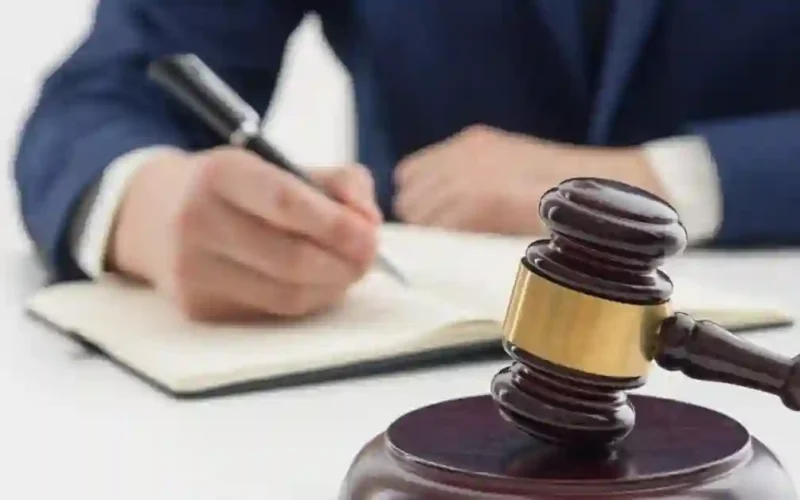Boating is a popular recreational activity enjoyed by millions of people worldwide. Whether it’s sailing on a calm lake, cruising along the coast, or fishing in the open sea, being out on the water can be a source of relaxation and adventure. However, like any other activity, boating carries inherent risks, and accidents can happen. When boating accidents occur, they can result in injuries, property damage, and complex legal issues. In such situations, maritime law experts, also known as admiralty or maritime lawyers, play a crucial role in helping victims seek justice and compensation. In this article, we will explore the dynamics of boating accidents, the challenges faced by those involved, and the indispensable role that maritime law experts play in personal injury claims arising from maritime incidents.
Understanding Boating Accidents
Boating accidents encompass a wide range of incidents, including collisions, capsizings, groundings, fires, explosions, and more. These accidents can occur on various types of vessels, from small motorboats and sailboats to large commercial ships. Common factors contributing to boating accidents include:
- Operator Error: Many boating accidents result from operator error, such as inexperienced or intoxicated boat operators, speeding, reckless navigation, or failure to adhere to safety regulations.
- Mechanical Failures: Mechanical issues, such as engine malfunctions or equipment failures, can lead to accidents on the water.
- Weather Conditions: Adverse weather conditions, including storms, high winds, and rough seas, can increase the risk of accidents.
- Collisions with Objects: Boats can collide with other vessels, docks, submerged objects, or floating debris, causing accidents.
- Fire and Explosions: Boating accidents can result in fires or explosions, often due to fuel leaks or electrical issues.
- Passenger Behavior: The behavior of passengers on board, including overcrowding, horseplay, or failure to follow safety instructions, can contribute to accidents.
The Impact of Boating Accidents
Boating accidents can have a significant impact on those involved, resulting in:
- Physical Injuries: Boating accidents can cause injuries such as fractures, lacerations, burns, head injuries, spinal cord injuries, and drowning.
- Emotional Trauma: Survivors of boating accidents may experience emotional trauma, including post-traumatic stress disorder (PTSD) and anxiety.
- Property Damage: Accidents can lead to damage or loss of vessels, personal property, and equipment.
- Loss of Life: Tragically, some boating accidents result in fatalities, leaving families grieving the loss of loved ones.
Legal Recourse for Boating Accidents
When boating accidents occur due to negligence, equipment failure, or other factors, victims or their families may have legal recourse to seek compensation for their damages. Legal action is typically pursued through personal injury claims or wrongful death lawsuits, which may involve the following elements:
- Liability: Establishing that the boat operator, owner, manufacturer, or other parties involved owed a duty of care to the victim, breached that duty, and that breach directly resulted in the accident and injuries.
- Damages: Demonstrating the extent of the victim’s injuries and losses, which may include medical expenses, lost wages, pain and suffering, and other damages.
- Causation: Proving that the injuries or harm suffered by the victim were a direct result of the negligence, mechanical failures, or other factors that contributed to the boating accident.
The Role of Maritime Law Experts in Boating Accident Cases
Boating accident cases involve unique complexities, including federal and state maritime laws, navigational rules, and regulations specific to the marine environment. Maritime law experts, also known as admiralty or maritime lawyers, bring specialized knowledge and experience to these cases, providing vital support and advocacy:
- Case Evaluation: Maritime law experts assess the merits of potential boating accident cases. They review the circumstances surrounding the accident, evaluate liability, and determine the viability of the claim under maritime law.
- Gathering Maritime Evidence: Lawyers have the resources and expertise to collect crucial maritime evidence, such as accident reports, vessel maintenance records, navigational charts, witness statements, expert opinions, and any other documentation relevant to the case.
- Determining Liability Under Maritime Law: Maritime law experts identify the responsible parties, which may include boat operators, owners, manufacturers, maintenance crews, or other entities, and establish liability for the boating accident under maritime law.
- Navigating Federal and State Laws: Boating accidents often involve a combination of federal maritime laws and state regulations. Maritime law experts understand how these legal frameworks intersect and can effectively navigate them to benefit their clients.
- Negotiating with Defendants and Insurers: In many boating accident cases, compensation is sought through negotiations with the responsible parties or their insurance companies. Maritime law experts use their negotiation skills to seek a fair settlement on behalf of their clients, while also preparing for trial if necessary.
- Preparing for Trial: Boating accident cases can be highly contested, and maritime law experts must be prepared to take cases to trial if negotiations fail. They conduct thorough trial preparations, including witness interviews, evidence presentation, and courtroom strategy.
- Advising on Documentation: Lawyers guide clients on the importance of documenting their injuries, medical treatment, expenses, property damage, and other damages. Proper documentation is essential for establishing the extent of the harm suffered.
- Providing Maritime Expertise: Maritime law experts possess specialized knowledge of maritime law and regulations, ensuring that their clients receive accurate legal advice tailored to the unique aspects of boating accident cases.
Types of Damages in Boating Accident Cases
In boating accident cases, victims or their families may be entitled to various types of damages, depending on the circumstances and the impact of the accident. These damages can include:
- Medical Expenses: Compensation for past and future medical bills related to the boating accident, including hospitalization, surgeries, rehabilitation, therapy, and mental health services.
- Lost Wages: Reimbursement for income lost due to the boating accident, including missed work days, reduced earning capacity, or permanent disability.
- Pain and Suffering: Compensation for the physical and emotional pain, suffering, and distress experienced by the victim.
- Property Damage: Coverage for property damage caused by the boating accident, including damage to vessels, personal belongings, and equipment.
- Wrongful Death Damages: In cases involving fatalities, surviving family members may seek compensation for funeral and burial expenses, loss of financial support, and the emotional toll of losing a loved one.
- Punitive Damages: In cases of extreme negligence or willful misconduct, punitive damages may be awarded to punish the responsible parties and deter future misconduct.
Conclusion
Boating accidents are distressing events that can have life-altering consequences for victims and their families. Those affected deserve support, justice, and compensation for their injuries and losses. Maritime law experts specializing in boating accident cases play a crucial role in helping victims seek the legal recourse they need. Their expertise, dedication, and commitment ensure that those affected by boating accidents receive the advocacy and representation necessary to navigate the intricate legal process. If you or a loved one has been involved in a boating accident, consulting with a skilled maritime law expert is essential for seeking justice and compensation in the aftermath of these challenging incidents.







